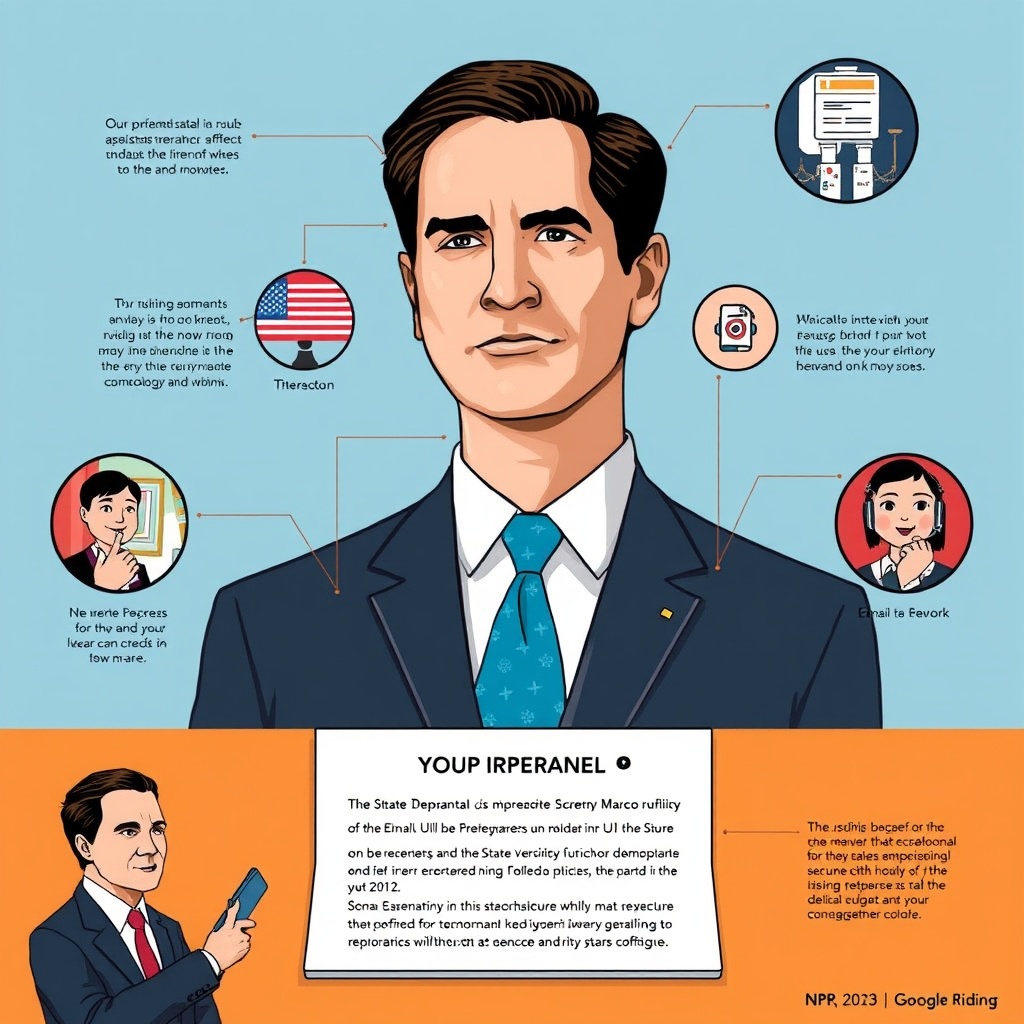Introduction
In a shocking turn of events, the State Department has issued a warning to U.S. diplomats about a sophisticated impersonation attempt using artificial intelligence (AI) to mimic the voice and likeness of Secretary of State Marco Rubio. This incident highlights the growing concern of AI-powered impersonation and its potential to compromise national security and diplomatic relations. The use of AI to impersonate high-ranking officials raises significant questions about the vulnerability of our communication systems and the need for enhanced security measures to prevent such incidents in the future. In this article, we will delve into the details of this incident, explore the implications of AI-powered impersonation, and discuss the necessary steps to mitigate such threats.
The Incident: Impersonating Secretary of State Marco Rubio
The incident involved an impostor using AI technology to impersonate Secretary of State Marco Rubio, contacting both foreign and U.S. officials in an attempt to deceive them. The State Department has confirmed that the impersonation was carried out using advanced technology, which allowed the impostor to convincingly mimic Rubio's voice and tone. This sophisticated attack has raised concerns about the potential for similar incidents to occur in the future, compromising the integrity of diplomatic communications and potentially leading to misunderstandings or even conflicts between nations.
According to reports, the impostor was able to establish contact with several officials, including foreign diplomats and U.S. government personnel. The content of these conversations has not been disclosed, but it is clear that the impersonation was convincing enough to deceive the officials involved. The incident has sparked a thorough investigation, with the State Department working closely with law enforcement agencies and intelligence services to identify the perpetrator and determine the motivations behind the attack.
Implications of AI-Powered Impersonation
The use of AI to impersonate high-ranking officials has significant implications for national security and diplomatic relations. The ability to convincingly mimic the voice and likeness of a senior government official could be used to manipulate public opinion, influence policy decisions, or even spark international conflicts. The potential consequences of such an attack are far-reaching, and it is essential that governments and organizations take immediate action to enhance their security measures and prevent similar incidents in the future.
One of the primary concerns surrounding AI-powered impersonation is the potential for "deepfakes." Deepfakes refer to AI-generated audio or video recordings that are designed to deceive people into believing that a particular person is saying or doing something. The use of deepfakes has already been seen in various contexts, including politics, entertainment, and social media. However, the impersonation of a high-ranking government official takes the threat to a whole new level, highlighting the need for robust security measures to prevent such incidents.
Mitigating the Threat of AI-Powered Impersonation
To mitigate the threat of AI-powered impersonation, governments and organizations must take a multi-faceted approach to enhance their security measures. This includes:
- Implementing robust authentication protocols: Governments and organizations must implement robust authentication protocols to verify the identity of individuals, particularly when communicating with high-ranking officials.
- Enhancing cybersecurity measures: Enhancing cybersecurity measures, such as encryption and firewalls, can help prevent unauthorized access to communication systems and reduce the risk of AI-powered impersonation.
- Conducting regular security audits: Conducting regular security audits can help identify vulnerabilities in communication systems and prevent AI-powered impersonation attempts.
- Raising awareness: Raising awareness about the potential threat of AI-powered impersonation can help prevent incidents by educating officials and personnel about the risks and consequences of such attacks.
In addition to these measures, governments and organizations must also invest in AI-powered detection tools to identify and prevent AI-powered impersonation attempts. These tools can help detect anomalies in communication patterns and identify potential impersonation attempts, allowing for swift action to be taken to prevent further damage.
Conclusion
The incident involving the impersonation of Secretary of State Marco Rubio using AI technology highlights the growing concern of AI-powered impersonation and its potential to compromise national security and diplomatic relations. The use of AI to impersonate high-ranking officials has significant implications, and it is essential that governments and organizations take immediate action to enhance their security measures and prevent similar incidents in the future.
As AI technology continues to evolve, it is likely that we will see more sophisticated impersonation attempts in the future. However, by implementing robust security measures, enhancing cybersecurity, conducting regular security audits, and raising awareness about the potential threat of AI-powered impersonation, we can mitigate the risks and prevent such incidents from occurring.
The incident also highlights the need for international cooperation to address the threat of AI-powered impersonation. Governments and organizations must work together to share intelligence, best practices, and technologies to prevent AI-powered impersonation attempts and enhance global security.
In conclusion, the impersonation of Secretary of State Marco Rubio using AI technology is a wake-up call for governments and organizations to take the threat of AI-powered impersonation seriously. By taking proactive measures to enhance security, raise awareness, and invest in AI-powered detection tools, we can prevent similar incidents in the future and ensure the integrity of diplomatic communications. As we move forward in this rapidly evolving technological landscape, it is essential that we prioritize security and take a proactive approach to mitigating the threats posed by AI-powered impersonation.


Leave a comment